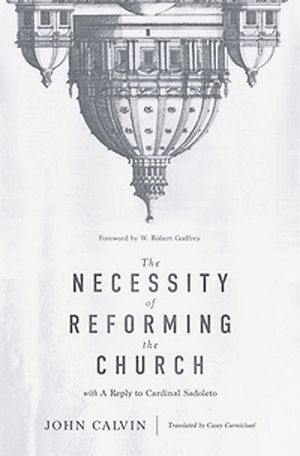Part 2
‘But we will give ourselves continually to prayer and to the ministry of the word’ (Acts 6:4)
L
ast month we looked at the first half of this verse. We saw the vital importance for pastors and preachers to give themselves to prayer. We now turn our attention to the second half of the verse — the apostles determined to give themselves ‘to the ministry of the word’.
We will examine, firstly, why pastors and preachers should give themselves to this ministry and, secondly, the manner in which they should do so.
Christ’s call
First of all, let us be clear that by ‘the ministry of the word’ the apostles meant preaching. When we speak of ‘the Word’ we often mean the Scriptures, and certainly the Bible is central to an understanding of our verse.
But the main point the apostles are making here is that they must not be distracted from their vital work of preaching — even by valuable social work.
So it is (or should be) with every pastor and preacher. There are many good things that call upon our time. There are unending needs and worthy causes, both in our churches and in the world at large.
We could spend all our days seeking to meet these needs, and do a great deal of good in the process. But if we were called by Christ to preach the gospel, we would have seriously neglected our duty — we would have entirely missed our calling.
Christ’s constraint
This, then, is the first reason why pastors and preachers are to give themselves to this ministry. It is the work to which they are called by Christ. He has commissioned them to this task, and they must not allow themselves to be distracted from it.
It is abundantly clear from the New Testament that the pastor’s main task — the task to which he is to give himself supremely and to which Christ has primarily called him — is that of preaching.
This in turn must work itself out in a practical way, specifically in his use of time. Is he disciplined in this respect? We must not regard self-discipline as legalism. The apostle Paul clearly did not (see 1 Corinthians 9:24-27; Galatians 5:23).
For the sake of Christ, and the calling to which he has called him, the pastor or preacher will seek to be rigorous in his use of time. Otherwise, time will run away like sand between his fingers (Ephesians 5:16).
The motivation, again, is not stoicism but love for Christ and a desire to obey him. We are constrained by the love of Christ (2 Corinthians 5:14).
Christ’s work
A second reason why the pastor must give himself to this work is that it is the work of Christ. It is not that we continue the work of Christ by preaching, but that through our preaching Christ continues his own work.
He has no need of us, of course. But he graciously deigns to use us in the continuance of his great work of the gospel. This is a great privilege.
A child delights to ‘help’ his father carry out jobs around the house or in the garden. The father has no real need of the child’s help, but nevertheless delights to see this expression of his child’s love.
So the pastor and preacher loves to be used by his Master. It is through preaching that Christ continues the work of saving souls, building up the church, and keeping her in truth, unity and love.
We need to take this to heart. It is not through miracles, signs and wonders that this work is carried on. Nor is it through organisations and structures, or methods and techniques.
Christ carries on his work through the preaching of the Word, and it is to this task that those called must give themselves.
Christ’s way
Our second main point relates to the way this work of preaching is to be carried out. A great many things could be said under this heading, but I want to concentrate on only one — what is to be preached?
The content of the message is defined, of course, in Matthew 28:19-20: ‘all things that I have commanded you’, said the Lord Jesus.
What does this include? Here, we are in a different position from the apostles. They had the Old Testament but not the New. But they did have the Holy Spirit — directly and infallibly teaching them what to pass on to others (John 14:13).
Although we also have the Spirit of Christ, he no longer works by direct revelation. Why not? Because all we need already stands revealed in the New Testament, given to complete the Old.
We thus possess the complete, sufficient, infallible, inspired and authoritative Scriptures — the revealed Word of God. This is what we are to preach.
Christ’s message
This being so, the preacher must ‘give himself’ to the study of the Scriptures. If this is his message, he must be sure to know it well. He must apply his mind to understanding the Scriptures.
There is nothing mystical about this. Understanding does not just ‘come’ — revealed, as it were, direct to our hearts from heaven above. We can do nothing without the Holy Spirit, of course, but our understanding of spiritual truth nevertheless comes through the mind. This requires hard work — there is no short cut.
It is not enough just to read a verse or passage to get a ‘thought’ from it to develop as we feel inclined. It is not enough just to enthuse over a text, or decide ‘what the passage is saying to me’.
Nor are we merely to pass on what others say about the text. All these are illegitimate short-cuts — at worst, the resort of the hireling, not of the true under-shepherd. The preacher’s job is to preach the message of the text or passage before him.
Christ’s cross
But what is the message of Scripture? It is,‘Jesus Christ and him crucified’ (1 Corinthians 2:2). Jesus himself proclaimed that all Scripture speaks of him (Luke 24:27, 44; John 5:39).
Do we believe this? The whole Bible, Old and New Testaments, is not only the Word of Christ, but speaks of Christ — of his sufferings and the glories that would follow (1 Peter 1:11).
The Old Testament is not just a book of history, law and prophecy. It speaks of Christ. It pointed forward to the coming Messiah who would deliver his people from their sins.
It tells of the time to come, when people from all nations would worship God in spirit and in truth. As we preach the Old Testament let us ensure that these Christ-centred truths are fully brought out.
Christ’s Spirit
If, then, we are to expound Scripture rightly, we must study it. We must learn about Old and New Testament history and culture, gathering background information about the times to which Scripture relates.
We must understand the meanings of the words in their contexts. If we can learn something of the original languages, so much the better. We must uncover the reasoning and argument of the passage before us, and ensure that our interpretation of the passage does not contradict other parts of Scripture.
Above all, this must be done prayerfully, seeking the help of the Holy Spirit to illuminate our understanding, to guide us to passages from which to preach, and to help us prepare what to say.
Having studied the Word, it must then be preached. The truths that have been mined from Scripture must be communicated — but first of all to the preacher himself. He must preach to himself what he will later preach to others.
He must himself learn the lessons that he would teach others — in his heart and life as well as his mind. He must examine himself in the light of the Scriptures he is studying, and submit himself to them.
Preaching Christ
The preacher and the pastor has a message to proclaim, to convey to others. He must remember this when he preaches. He is not just there to fill up the time, or because people expect him to ‘perform’.
He is there to tell them something, to proclaim what the Scriptures teach — to preach Christ to them. He has a commission from the Saviour to preach him.
It burns like fire in his bones. He finds that he has no choice but to preach this mighty gospel of grace.
So he takes every opportunity to preach this glorious message — in church, or out of it; at set times and at other times; over the radio, in newspapers and books. Wherever he has the opportunity, he preaches Christ.
This is Christ’s work — it is to be done in his way. That way involves the preaching of the cross — a stumbling block to the Jews and foolishness to the Gentiles — but ‘to us who are being saved, it is the power of God’ (1 Corinthians 1:18).
This is the work to which every true pastor and preacher is called. To this, with prayer, we are to ‘give ourselves’.
An address given at the EP preachers’ conference in Benin, West Africa.


















